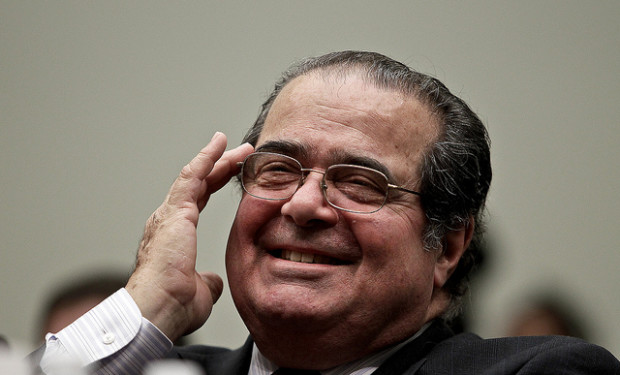Rest in Peace Justice Scalia
Where do we go from here?
Supreme Court Justice Antonin Scalia passed away in his sleep on Saturday, February 13, 2016, at age 79. He had served on the United States Supreme Court since 1986, appointed by Ronald Reagan, and was the longest serving justice on the Supreme Court. Scalia was known for being a textualist, meaning he tended to interpret the Constitution in its plain text meaning.
His opinions were often controversial, often dividing liberal minds from conservative ones. However, Scalia did not base his case decisions on politics or emotions, but rather he decided cases based on the specific words of the Constitution, a true originalist. Although many disagreed with him throughout his career, few can deny that he was an immensely talented writer and a brilliant legal scholar. “He was an extraordinary individual and jurist, admired and treasured by his colleagues,” Chief Justice Roberts said in a statement, “His passing is a great loss to the court and the country he so loyally served.”
Now, the country waits with baited breath to see who his replacement will be. Some names have already been thrown around, but it is too early to tell who will take Scalia’s seat among the eight other justices. Under President Obama’s presidential reign, Elena Kagan and Sonia Sotomayor joined the Supreme Court. Now, Obama has the opportunity to appoint a third justice, a move that is already fiercely opposed by conservatives.
Today, the nation mourns Justice Antonin Scalia’s unexpected death, and looks to the future with anticipation and anxiety.
With Justice Scalia’s passing, the Supreme Court is split with four conservative justices and four liberal justices. Therefore, the choice for a replacement is crucial in determining how future Supreme Court cases could be decided. Most expect Obama to attempt to appoint a more liberal justice, which would sway future cases towards a liberal point of view. However, the pick would have to pass through the Senate, which is currently controlled by the GOP and unlikely to confirm a liberal choice. The GOP wants Obama to let the next President choose the next justice, hedging their bets that a Republican will be elected come November.
Article II of the Constitution allows the President to nominate a candidate. The Senate must then agree to the candidate, at which point the candidate will be appointed by the President. Considering the current political climate, receiving the Senate’s assent could take an unprecedented amount of time. (The longest time from nomination to appointment is 125 days, when Justice Brandeis was confirmed under Woodrow Wilson.) If the GOP does refuse to assent to Obama’s nomination, the Democrats will likely take to the media and claim obstructionism, which could be the kiss of death for the GOP in an election year. If Obama hopes to appoint a justice before he leaves office, he may choose a more moderate candidate that would be palatable to both sides.
Many cases are still pending, and many arguments are scheduled to be heard in the near future. With only eight justices sitting, court decisions could be split evenly until a new justice is added. What happens when a tie occurs? In the case of a tie, “the lower court opinion is affirmed without creating any Supreme Court precedent.” A per curiam decision will be given, which is a decision that comes from the Court, but is not given by a specific judge. Dissents are still possible with a per curiam decision, but ultimately mean little from a legal standpoint.
A Supreme Court Justice has not died while serving on the bench since 2005 when Justice Rehnquist passed away. Today, the nation mourns Justice Antonin Scalia’s unexpected death, and looks to the future with anticipation and anxiety.





